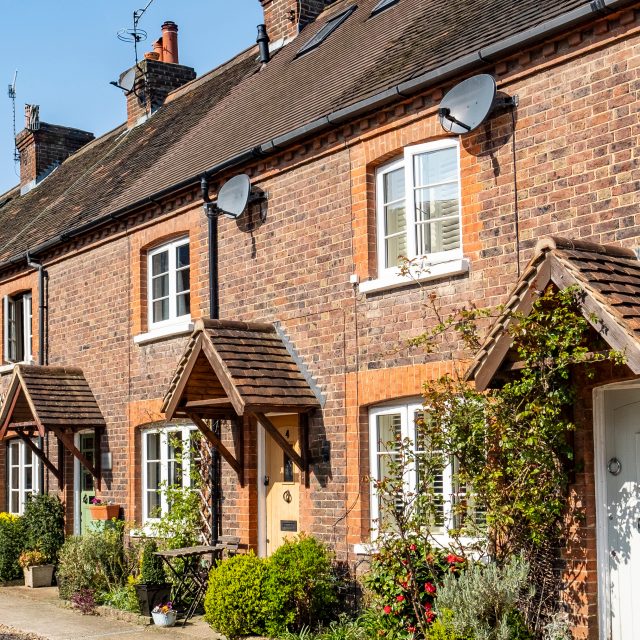Low-carbon alternatives to gas and oil central heating
For decades, fossil fuel boilers have been the heating system of choice in British homes. It is estimated that eight out of ten homes currently rely on gas, with most users viewing it as a clean, reliable, safe and cost-effective form of central heating. The remaining users opting for heating oil which is viewed as cleaner than open fire solutions.
But change is on the way. A consultation is currently running on a Future Homes Standard which could include a ban on fossil fuel boilers in new homes from 2025.
Energy use in the home currently accounts for 14% of total UK greenhouse gas emissions. The Committee on Climate Change has repeatedly warned that the UK’s legally-binding target of net zero carbon emissions by 2050 will not be achievable without the near-total elimination of greenhouse gas emissions from UK homes.
In existing homes, reductions can be made through the greater uptake of energy efficiency measures, such as loft and wall insulation, and by householders being more mindful of their energy use by switching off lights and other electrical items when they are not being used.
But the pressure is also on homeowners to move away from fuels like gas, coal and oil and towards low-carbon alternatives if emissions to be reduced more meaningfully.
For landlords, the need to consider more efficient forms of space and water heating may be particularly pressing if improvements are required to enable them to comply with the Minimum Energy Efficiency Standards (MEES) regulations.
So what are the low-carbon heating alternatives to fossil-fuel systems?
The main alternatives, along with some of the most immediate pros and cons, are as follows:
Air source heat pumps (ASHP)
- Low level of heat output, meaning installation can require upgrading the building’s fabric with better insulation and installing larger radiators or installing under-floor heating.
- Relatively high upfront cost, with ASHP costs (including installation) starting at around £7,000.
- Annual running costs estimated at around £550/yr, compared to £1,400/yr for LPG boiler.
- Eligible for Renewable Heat Incentive (RHI) (new build excluded in most circumstances).
Biomass
- Constant supply of timber required and somewhere to store it – but beneficial if you have access to wood.
- More space required to accommodate boiler.
- Typical installation costs for 3-bed home £10,000-12,000 and more if it is automatically fed.
- Cheaper to run than heating oil and LPG.
- Eligible for Renewable Heat Incentive (RHI)
- Low maintenance depending on type.
Electric boilers:
- Installation of a typical 15KW electric boiler starts at £3,000.
- Estimated to be 99% energy efficient.
- No flue required.
- Low maintenance.
- No regular checks required.
- Connects directly to existing infrastructure.
- Running costs depend on tariff, however, most boilers operate intermittently and on a day tariff (07:00-24:00), cost around 15p/kWh. Economy 7 can help but this is still typically 8p/kWh and only available from midnight to around 7am.
- This cost is high compared to a cost of 4.5p/kWh for natural gas, 5p/kWh for heating oil and 7.5p/kWh for LPG.
Ground source heat pumps (GSHP)
- Planning may be required, but rarely a factor.
- High cost of installation, with total costs for a typical GSHP ranging from £20,000-25,000.
- Sufficient land required to install the network of underground piping – may be a challenge for a property in an urban setting.
- Low level of heat output, meaning installation can require upgrading insulation on older properties and installing larger radiators.
- Can reduce energy bills by at least a quarter compared to a new gas boiler.
- Eligible for Renewable Heat Incentive (RHI).
Hydrogen
- Not currently a viable option as hydrogen production still expensive. However, boiler manufacturers are already adapting designs to accommodate a hydrogen future.
- The gas infrastructure will determine the full viability. However, hydrogen- ready boilers will be available in the near future.
Hybrid (boiler and ASHP or GSHP) combined
- This adds a renewable technology to your existing boiler system to cope with the different demands of the heating season. When it gets very cold the existing boiler will boost the heat in lieu of improving the thermal insulation of the building.
- Reduced running costs.
- Connects to existing infrastructure.
There are no right or wrong answers on the best way forward.
Each property has to be assessed on a case-by-case basis to see what the needs are and what can be achieved depending on the budget available.
Running costs are important as the Energy Performance Certificate (EPC) rating is actually an indicator of how cost effective a property is to heat, not just how energy efficient it is. So investing in an expensive-to-run system might push an EPC down, rather than improve it.
Home-owners also need to consider the life of the existing boiler – if it still has plenty of life left in it, then maybe a hybrid solution could be the best solution.
Heat pumps can be used in both rural or urban environments and may be worth considering if a property is going to be refurbished and you intend to double glaze and insulate.






